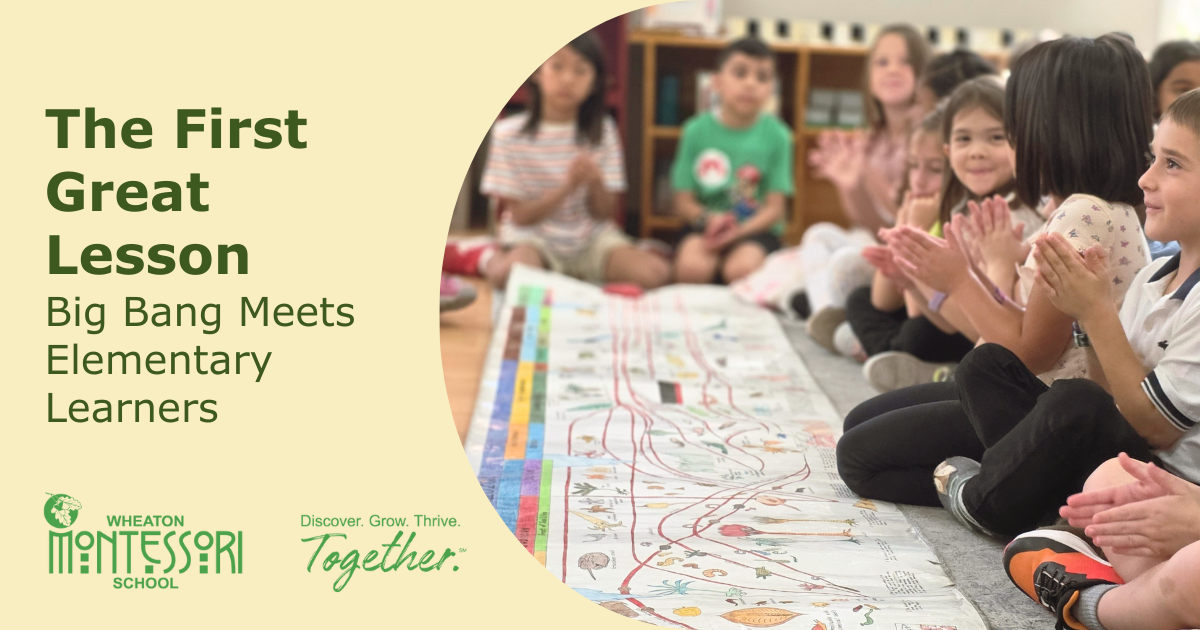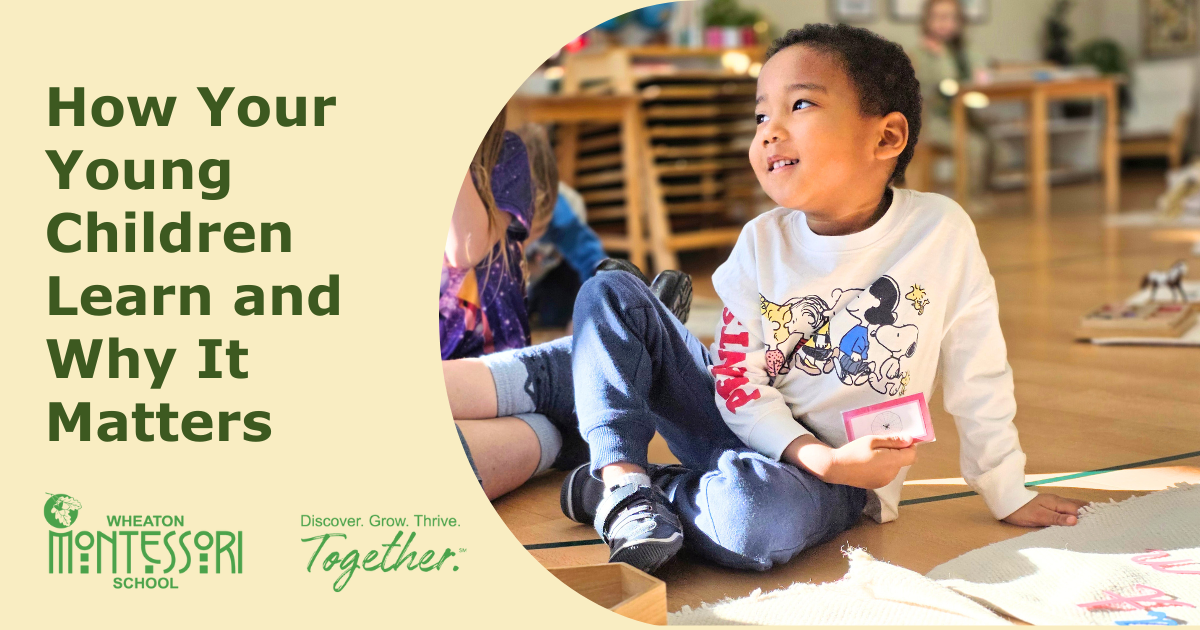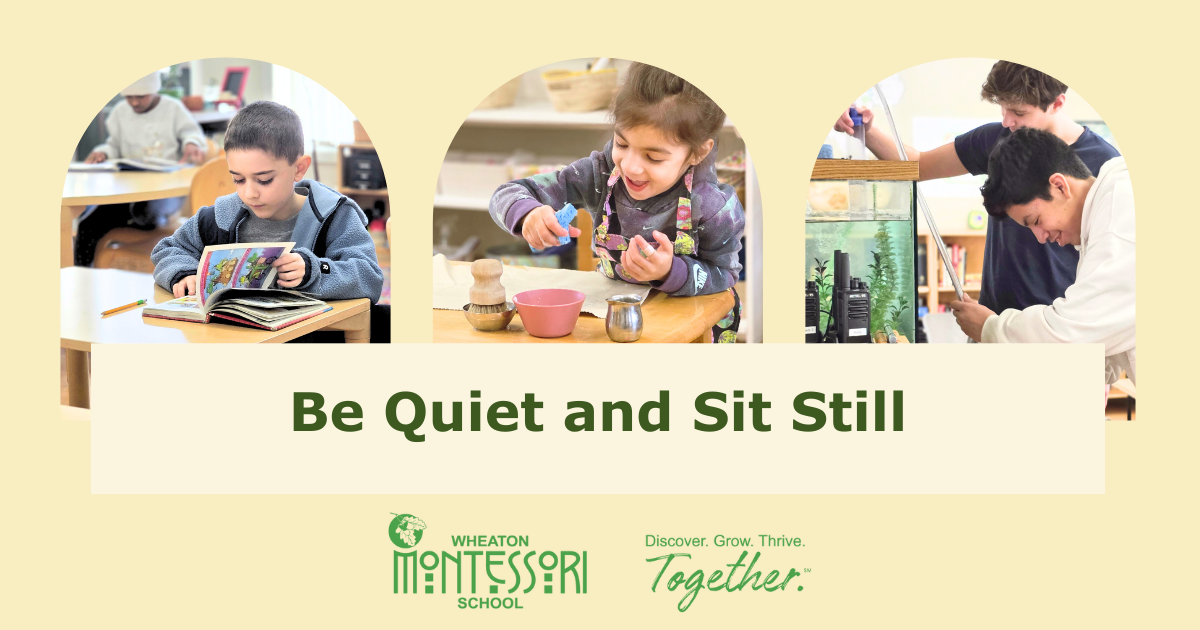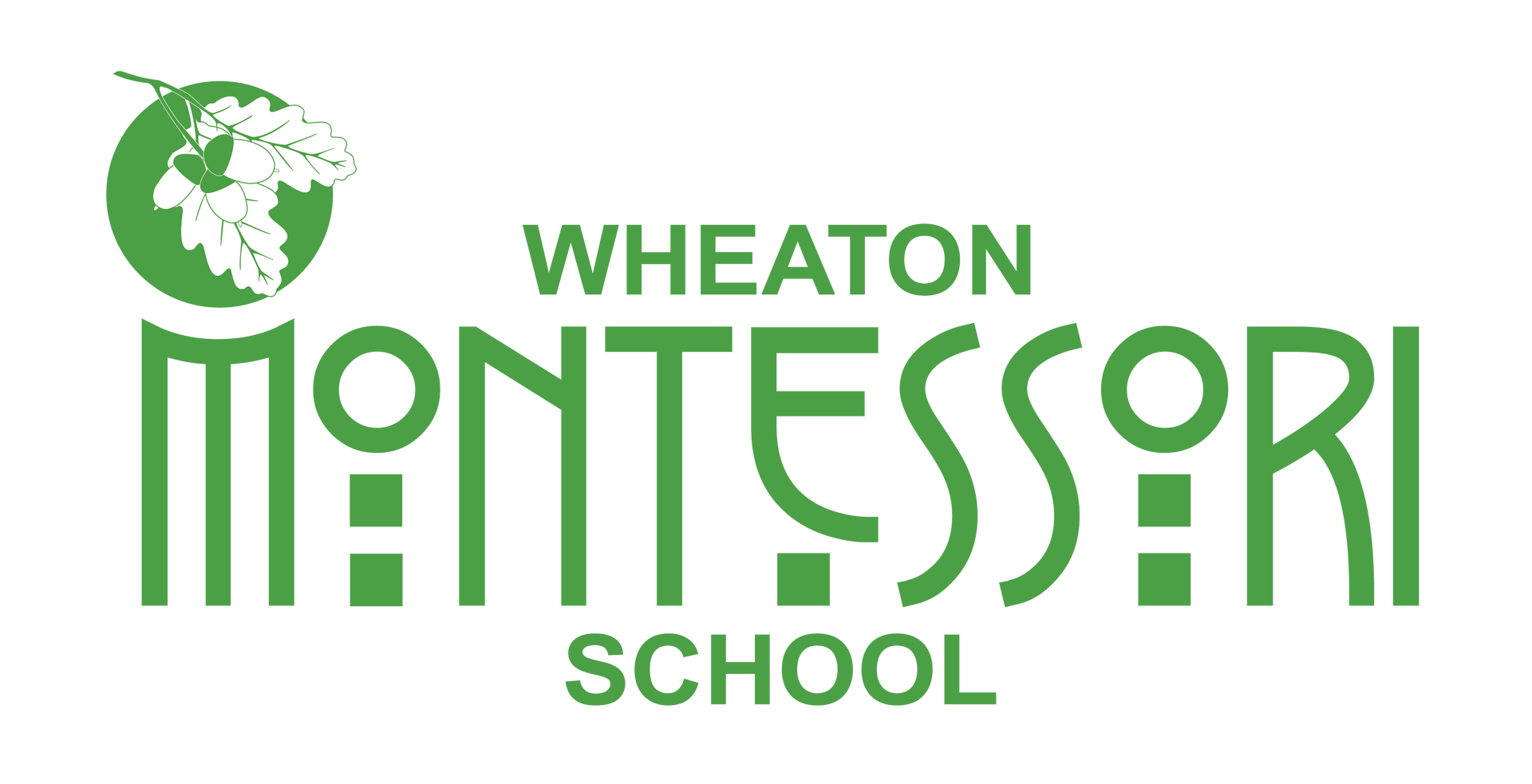
The First Great Lesson: Big Bang Meets Elementary Learners
At Wheaton Montessori School, we begin elementary education with a bang. Literally.
Known as The First Great Lesson, this powerful introduction to the Montessori elementary curriculum is more than just a lesson. It’s an experience. Often called The Coming of the Universe, it’s a sweeping, story-driven journey through the cosmos.
But here’s what makes it unique: it’s not just a science lecture packed with facts and figures. It’s told as a dramatic, awe-inspiring story, beginning with a moment of complete stillness, followed by:
“Once upon a time... there was nothing. Then—BOOM—everything.”
A Story That Sparks Curiosity
The First Great Lesson captures the big picture of how the universe began, moving through the formation of stars, planets, and the laws of nature.
But the goal isn't to deliver every scientific detail. It’s our goal to ignite wonder and plant seeds of curiosity that lead students to ask why and how. Why do stars shine? How did volcanoes form? What forces shaped our planet? That spark of curiosity is what drives meaningful learning.
Why Tell It as a Story?
Dr. Montessori’s use of storytelling is intentional. First through sixth graders are in a stage when their imagination, sense of morality, and desire to understand everything are expanding.
The First Great Lesson taps into these characteristics by offering a narrative framework that makes room for wonder. It gives children a reason to care, to question, and to dig deeper.
The Gateway to Everything
From this one lesson, an entire world of study unfolds. At Wheaton Montessori School, you’ll see students:
- Exploring states of matter through experiments
- Creating models of volcanoes and Earth's layers
- Studying star formation and black holes
- Building timelines of Earth's history
- Diving into physics, chemistry, geology, geography, and beyond
And it all starts with that initial story.
From Inspiration to Investigation of Your Place in the Universe
The First Great Lesson doesn’t try to teach everything. It gives an impression, an experience that opens the door to deeper, more focused learning. After listening to this story, learners research, experiment, and explore subjects in greater scientific depth. The First Great Lesson inspires children by conveying:
“You are part of a huge, beautiful, ordered universe, and your work is to explore it.”
Wheaton Montessori School, your teachers, and your community are here to support you every step of the way! We can’t wait to watch your research, presentations, and experiments develop!
Because at Wheaton Montessori School, education isn’t just about information, it’s about inspiration.


